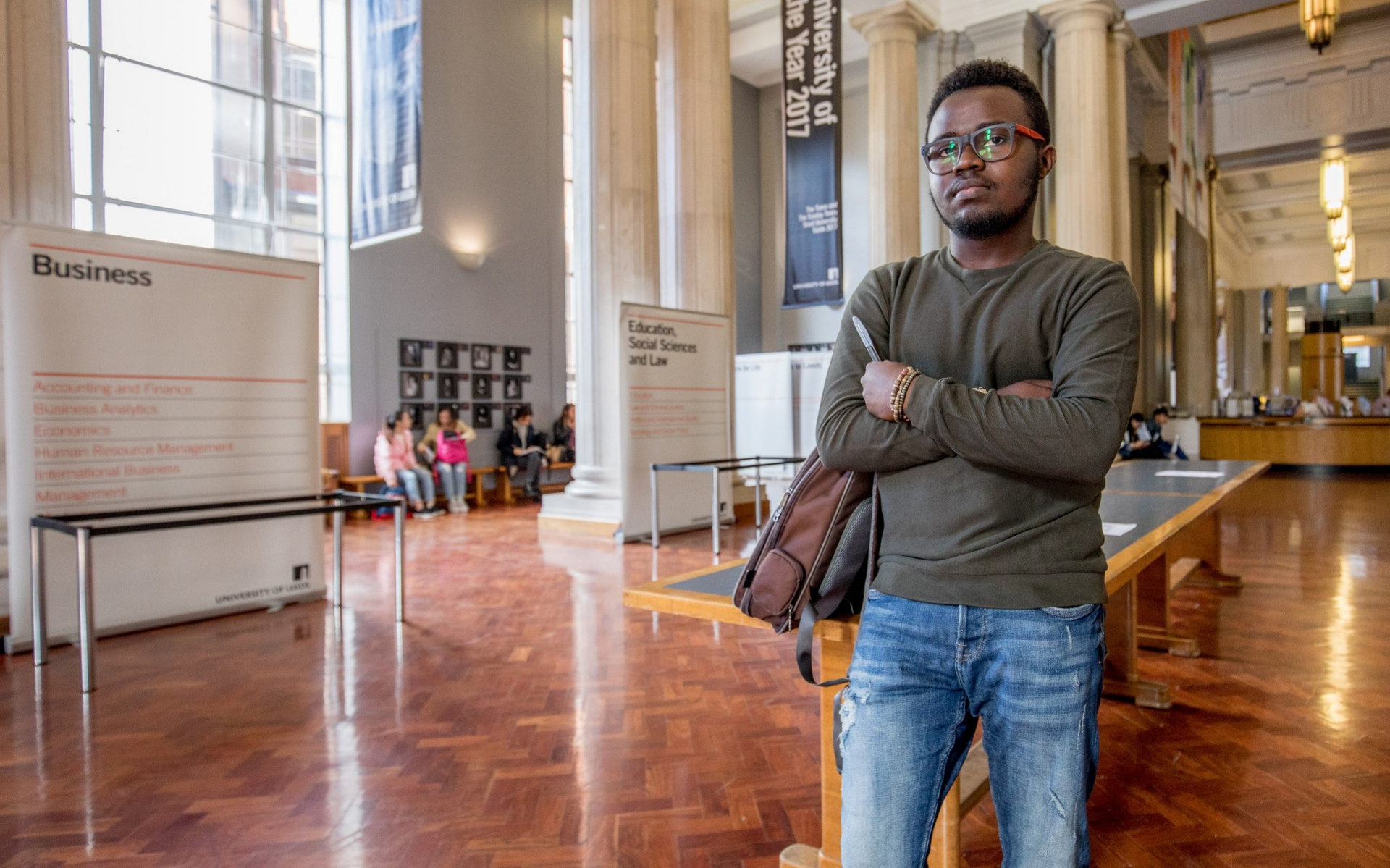Some of Nigeria’s brightest undergraduate students in the United Kingdom have had their funding withdrawn by the Nigerian government without their knowledge, leaving many facing deportation.
The Nigerian High Commission confirmed that 152 students had been affected by the scandal, and stated that the bursary scheme had folded as a result of a slump in national oil revenues.
A number of students, including those at Leeds, Sussex and Essex, have allegedly been told that they will not receive their degree certification, even though many have completed their courses in the last academic year. Some have also been told that they may face deportation.
The universities of Sunderland and Swansea have allowed affected students to graduate, leading to accusations from Conservative MP Robert Halfon that some institutions are attempting to use the debt like a “ransom”.
Halfon has called for the government to consider new safeguards for students, such as the introduction of compulsory insurance agreements, and has stated that the government should intervene to help those with no financial support.
“Whilst some universities have done the right thing, it appears outrageous and unacceptable from those who won’t help these students in complete distress, and are holding a loan over the heads like a ransom,” said Halfon.
“Universities should be using their bursaries and other funds to support these students, and I hope that the government will be able to step in to find a solution,” he added.
One University of Leeds student who has been affected is Ogbonnaya Samuel Ogbonna, a BSc Medical Sciences undergraduate, who was due to begin his third year, this year.
After his funding was withdrawn by the Rivers State Government of Nigeria in 2016, Ogbonnaya has been left owing over £32,000 – a figure the university refuse to waive.
His case was taken to the highest level in the Faculty of Medicine and Health, but the Head of School ruled him unable to continue into his third year, although offered the concession of allowing him to return in September 2018 or September 2019 to complete his degree.
This would be on the conditions that the debt, which covers fees, accommodation and exam registration, be settled, and that he can prove he has the financial means to cover the costs of his final year.

Now classed as being on ‘temporary leave’, Ogbonnaya is concerned about the potential threat of deportation, given his visa revolved around his registration on a higher education course in the UK.
“If I was to get deported or go home now, I wouldn’t be able to return for twelve months, but this would then mean I would miss the registration period for next year,” he said.
Ogbonnaya, whose single mother cannot afford to support him, has managed to find a part-time job, but as an international student he has limited permission when it comes to how many hours he can work.
“This continues to make it very difficult for me to gather enough money to clear my outstanding charges and financially plan for my final year,” he added.
Earlier this week, students affected travelled to London to confront the Governor of Rivers State, Chief Ezenwo Nyesom Wike, outside the Nigerian Embassy. There, he told them that, in protesting with the hope of dialogue, they wouldn’t “get what they want” – the release of funds.
Video courtesy of Ogbonnaya Samuel Ogbonna.
A spokesperson from the University of Leeds said:
“We sympathise with students who lose their funding in such instances, although in this case, Ogbonnaya’s sponsor advised him to return home and offered full state sponsorship to continue with his studies.
“We understand this has been very upsetting and stressful for Ogbonnaya and the University and the Union has offered him extensive advice and support. Although details of what was discussed and any potential resolutions are necessarily confidential, we have set up meetings with specialist advisors and we have also liaised with key organisations on his behalf, including UK Visas and Immigration (UKVI).
“We seek to provide as much time as possible to resolve funding problems and, in some cases, such as where students are affected by natural disasters or conflict in their home country, arrange crisis funding, although we are not able to underwrite all sponsored students’ fees. The reasons for funding problems are many and varied, and each case requires individual consideration. As such, one policy does not fit all and any support varies according to circumstances.”
Ogbonnaya is keen to continue his studies at Leeds, rather than returning home, so has set up a GoFundMe page to raise the money that he owes the university which can be viewed at https://www.gofundme.com/helpsamuel2017.
Jonny Chard
(Photo Credit: The Telegraph/Charlotte Graham)

